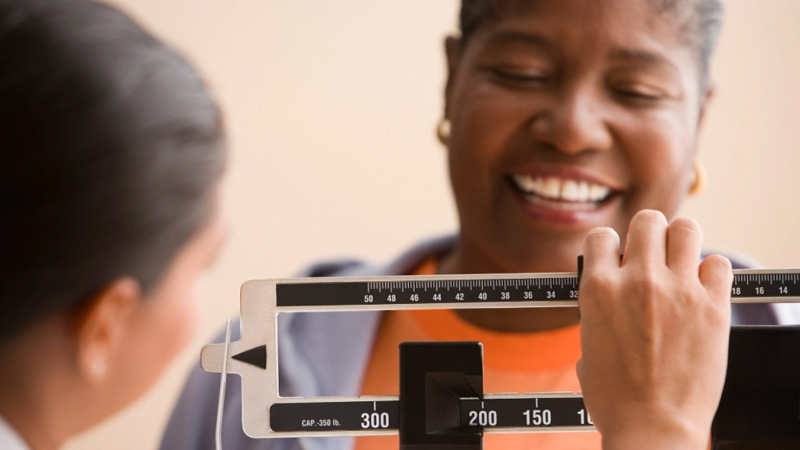![[feature] Doing This Could Reduce Your Risk of Severe Covid by 60 Percent](https://blogger.googleusercontent.com/img/a/AVvXsEi1KoC1PQgYWS7PZCbQ-IWPNL6k7zSVdbSgv0S4rI06fEiaVC5BeHOdXgkuPJGJjuoFdB_S0qhOu5ivW4BJqbfvTy5ZkvApTTNIioxb_ICzCt55jwtkIcpCVzME1eI116ibAexdppUv0Qk_6sMoSkyae9hZWR84IEX-ihY2Ux7Wd7a3C8QHHqaQGcv0=s16000-rw) |
| © Getty Images |
As the Omicron variant sweeps across the U.S. and takes over the news, many of us have wondered what more we can do to protect ourselves against developing a severe case of Covid-19. Omicron may cause milder symptoms than Delta, but serious illness is still not off the table (that’s true regardless of the variant). Fortunately, new research shows that there may be another way to ward off severe illness if you are overweight or obese: losing weight.
We’ve known for some time that being overweight or obese increases a person’s risk of severe Covid-19 disease. In fact, being obese may triple the risk of hospitalization due to an infection. However, it’s been unclear if weight loss can decrease that risk — until now.
A Closer Look at the Research
In a study published in JAMA Surgery on December 29, 2021, researchers from the Cleveland Clinic wanted to know whether substantial weight loss reduced a person’s risk of contracting Covid-19 and becoming severely ill. They focused their research on patients who had undergone bariatric surgery sometime between January 1, 2004, and December 31, 2017. (Why focus on bariatric surgery patients? It was a way to ethically study the effects of weight loss on Covid-19 patients. It would be unethical to test whether natural weight loss reduces the risk of severe Covid-19.)The researchers looked at health records of over 20,212 participants, nearly 78 percent of whom were female. Between January 1, 2004 and December 31, 2017, 5,053 of those participants underwent bariatric surgery. (The remaining 15,159 participants became part of the control group.) By March 1, 2020, those who had undergone bariatric surgery had lost nearly 19 percent more body weight than those in the control group. Also, a smaller percentage of the surgery group (4.7 percent) had died in comparison to the control group (9.4 percent).
At the onset of the pandemic, the researchers began to wonder if significant weight loss (as seen in the bariatric surgery patients) would reduce risk of severe Covid-19. So, they tracked the number of Covid cases in their study participants for the next year.
Read More: The 4 Best Essential Oils for Sleep, According to Research
The Link Between Weight Loss and a Lower Risk of Severe Covid
Between March 1, 2020, and March 1, 2021, 206 bariatric surgery patients and 578 patients in the control group tested positive for Covid-19. Both groups contracted the illness at a similar rate – 9.1 percent in the surgery group and 8.7 percent in the control group.When the researchers analyzed the risk of severe illness from the virus, the results were impressive. Weight loss surgery was linked to a 49 percent lower risk of hospitalization and a 63 percent lower risk of needing supplemental oxygen. In addition, bariatric surgery correlated with a 60 percent lower risk of severe Covid-19 infection.
As a result, this study suggests that losing weight can reduce your risk of developing serious illness from Covid-19. The reason? Surgery-induced weight loss can improve breathing, blood sugar control, high blood pressure, cardiac disease, sleep apnea, and kidney function. Having one or many of these conditions increases a person’s risk of medical complications during an active infection. So, the researchers suspect that improving these ailments improves a person’s chances of surviving the disease.
Of course, weight loss isn’t a substitute for the other precautions you should take to prevent severe Covid-19. Getting vaccinated, wearing a mask, and practicing social distancing will help you stay safe this winter. If anything, use this research as motivation to stick to your New Year’s resolutions and practice a healthier lifestyle!
See more at First For Women
























